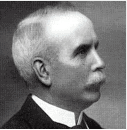“One of the best programmers I ever met was referred to, in Essex jargon, as being ‘two stops short of Dagenham’ (Barking)*. This was once no obstacle to the world of work…the best development teams I’ve worked on embraced the whole gamut of humanity – a wild mix of cultures, sexuality, motivation, age and beliefs, spiced with maverick spirits and eccentrics. The result being that everyone was jolted out of their complacency, both professionally and personally, and learned to challenge assumptions rather than accept them.”
Nowadays, when you see someone wandering down the corridor at work with his hand to his ear talking, apparently to himself, and laughing sporadically for no apparent reason, you know he’s on his mobile phone. In the days before mobiles, one used to shrug and assume he was a programmer.
The short history of computer programming has been highly enriched by a number of deeply eccentric people. They were rarely psychotic I hasten to add, although I recall that one of the most successful of all PC applications was originally written by a talented programmer who occasionally took it into his head that he was a teapot, and would subsequently disappear for an extended holiday, to brew maybe. They were unusual, odd, eccentric people; even some of the great pillars of Microsoft’s current product range started out life as the creations of maverick programmers.
I sometimes wonder why all of the great applications around today, such as spreadsheets, email, word-processing and relational databases, were invented in the seventies and eighties. Our greatest achievement in the past fifteen years seems to have been to refine the visionary approaches of a previous generation – one that cherished and valued the creative spark, and tolerated eccentricity.
Every programming team used to have its eccentrics. Society once valued their contribution highly. I’ve worked in development teams with characters whose saintly innocence and quirky world-views were valued. One of the best programmers I ever met was referred to, in Essex jargon, as being ‘two stops short of Dagenham’ (Barking). This was once no obstacle to the world of work.
When Fred, who we’d probably now tag with the “Asperger’s syndrome” label, was given a computer problem to solve, he would go into an extended reverie, staring out of the window in an apparent dream state. A fortnight would pass, with him frozen in thought, muttering, and showing strange ‘ritualized’ idiosyncratic mannerisms, hand movements, tics and such. We paid no attention because we knew there would always be a next stage, when he would suddenly rush to the keyboard and type in the complete source code from start to finish. His code always compiled first time and one never needed to test it. It always worked flawlessly, and was brilliantly conceived. Naturally, he was useless for group work or collaborative projects, but set him a clearly-defined task and we were all happy. Fred was an oddball, but he was one of us, a team member, and we loved him. In the pub after work, he was always with us, glass in hand, beaming in slight puzzlement at the social banter.
However, times were changing and eventually the spectre of ‘Human Resources’, with their quasi-scientific theories, fell like a dark shadow across our happy world. Fred carried on as before, but the time came when a young feminist graduate sat at a desk nearby. She misinterpreted those ritualised ‘tics’ and hand-movements that signified Fred exercising his magnificent brain and wrestling with invisible database entities (she wrongly assumed he was masturbating).
Quick as a flash she phoned the ‘Human Resources’ department. These people, whose collective job had once been the mundane execution of personnel processes and payroll runs, leapt to their new task: weeding out the oddballs. They summoned the security men who lifted Fred bodily, one on either side, and dragged him off to ‘Human Resources’ for a ‘disciplinary procedure’, just as he had almost constructed in his marvellous brain the most beautiful error-processing module .
The entire IT department froze in horror at what had been done. ‘Our Fred!’ went the cry. In a rare act of cohesion and speed we had the IT management shoulder-to-shoulder with the Union in getting our Fred back. We filled the corridors with angry shouts. He soon re-emerged apparently unscathed, surrounded by some highly embarrassed and apologetic HR bosses. Although Fred was apparently un-flummoxed, for the first and only time the program that then emerged refused to compile.
Time was against Fred and his ilk. An era that flattered itself to be ‘inclusive’ soon weeded out the eccentrics from corporate IT departments. I believe that with them went the creative spark and intrinsic stubbornness that is so vital to development work. One persistent myth in the IT industry is that, in development work, we need team players, not mavericks. It depends on what the team is doing. Harmony is fine for picnics and team-bonding exercises, but is not necessarily the precursor to productivity. The best development teams I’ve worked on embraced the whole gamut of humanity – a wild mix of cultures, sexuality, motivation, age and beliefs, spiced with maverick spirits and eccentrics. The result being that everyone was jolted out of their complacency, both professionally and personally, and learned to challenge assumptions rather than accept them. The trick is to harness the resulting energy and to share out the task to match each person’s skills and temperament.
Nevertheless, ‘Human Resources’ practitioners persist in many enterprises, with their ‘personality’ screening. This is an evil practice. Many will have experienced job interviews for a technical role where one is required to engage in ‘role play’, or is asked silly questions like ‘if you were an animal, which animal would you like to be’, and so on. Any trained and qualified psychologist will tell you that the tests are bunkum, culled from Girlie magazines. Even voluntary, properly administered personality tests, validated on large populations, and given in un-stressful settings, are notoriously unreliable. When they suddenly pop up in an interview, without prior consent, and the candidate has to give the “right” answer when a potential job is at stake, they are a gross impertinence, and probably illegal.
So cast a look around any IT development team. Typically, they will be all of about the same age, usually all-male, with very similar backgrounds and education. All good team players, supportive and wholesome, I’d guess. All well and good, but I’ve been privileged to meet quite a few of the people who made the great leaps forward in programming, and I suspect that the ones I’ve met would have got weeded out by the modern interview process. Nowadays, in this world of team players and well-adjusted, politically appropriate, vegetarian programmers, the idea of the wild and the eccentric in the midst of development activities would strike terror into many hearts.
——-
*Ed’s Footnote: To suggest that a person is “Two stops short of Dagenham” is to imply that they are slightly “oddball, whacko, crazy” etc. The saying has its origins in the fact that, on the District line of the London Underground Tube System, Dagenham was originally two stops away from Barking (it is now actually three stops). Barking, in this context, refers to the English colloquialism “barking mad”.





Load comments